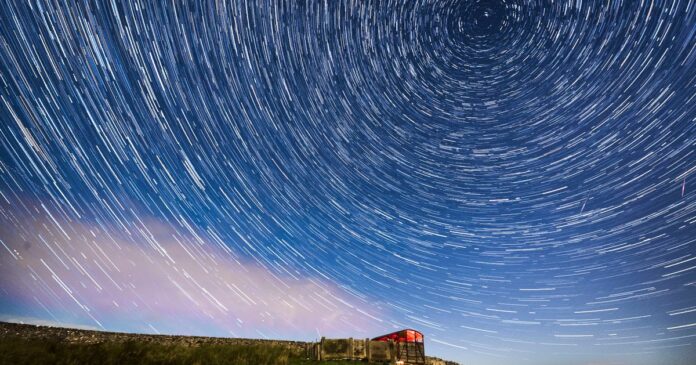Perseids meteor shower – caused as Earth passes through comet Swift-Tuttle on its path around the sun – will appear at its brightest on Saturday and Sunday
Stargazers across the UK have got another chance to spot the stunning flashes of dust or rock left in the wake of a comet as it becomes visible in the night’s sky in the early hours of Sunday morning.
Perseids meteor shower – caused as Earth passes through comet Swift-Tuttle on its path around the sun – will appear at its brightest this weekend. The meteor shower began on Monday, July 17 and will end on Thursday, August 24. But, because the moon will only be about 10 per cent illuminated this weekend, meaning it will be the best time to see it.
All you need to do is simply look up into the night sky in the early hours of Sunday and the meteors, which are flashes of debris left behind the comet, will shoot across the sky in all directions at huge speeds. There could be more than 100 meteors an hour to be seen.
Some of the meteors will be as small as a grain of sand, with the largest about the same size as a pea. They hit the Earth’s atmosphere at speeds of 134,000 mph, heating up which results in bright flashes which can be seen with the naked eye.


